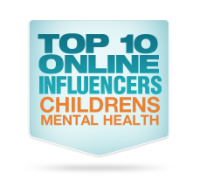Photo: Russian demonstrators with banner read ‘No juvenile justice in Russia!’ on rally in support of U.S. adoption ban. Moscow, March 2, 2013.” Source: Shutterstock
Three years ago, Russia closed international adoptions to Americans. Next week will mark two years since the Democratic Republic of the Congo stopped issuing exit letters for adopted children, effectively halting processes there. Rumors abound about proposed legislation in Uganda that would drastically change and possibly end international adoption there.
For families caught in process, these situations are hard. However, none of these are new stories. Guatemala. Rwanda. Nepal. Ghana. Vietnam. India. Haiti. Liberia. Ethiopia. All of these countries have closed some or all of their international adoption programs.
So how should we, as the church, respond when countries close to international adoption?
- Mourn with those who mourn.
Let’s weep with those who thought they were going to adopt a child but then couldn’t. Let’s be heartbroken over the children who were told a mommy and daddy were coming for them, including many who met those prospective parents, only to have that promise withdrawn. Let’s grieve for the children whose options have been exhausted in their home countries when their possible doors to international adoption vanish.
- Cheer with those who cheer.
We are a people of justice who follow one who calls himself the Truth. As such, ethics ought to matter to us. When international adoptions halt or end somewhere in an effort to eradicate corruption and child trafficking, let us say together, “this is good.” Instead of fighting against justice crusaders, we should be linking arms with them. This sort of cooperation can also allow us to nurture needed changes so that the adoption closure isn’t just an empty gesture but rather a step toward better outcomes for vulnerable children and families.
- Offer light and hope and help wherever you can.
Our friends at 99 Balloons and Joni & Friends have excelled in serving those with disabilities internationally, including work with orphanages and vulnerable families. Invest in projects like Wheels for the World and global therapy training trips. If you plan a trip for your church without working with a reputable organization, please be wise and go where you can help, not just where you can feel good. Holding babies in an orphanage is fun, but it’s often not beneficial. Bringing skills that you can apply to help children, either in offering a service (such as a dental care clinic) or in training workers to serve kids after you’re gone (for example, by teaching physical therapy techniques to caregivers of children with disabilities). Traveling isn’t the only way to help, though, as sometimes money can make a bigger impact. Consider giving financially toward in-country efforts where the same money that would have funded the international adoption of one child can serve many more. Finally, be prayerful in all these things, including where God might be leading you to care for vulnerable children and families right where you live.
So how do we respond when countries close to international adoption? Mourn with those who mourn. Cheer with those who cheer. Offer light and hope and help wherever you can.
And above all, remember that while adoption can be good, it makes for a lousy idol. We don’t exalt international adoption. We worship Christ. As countries may be fickle, our God can be trusted. Always.
In addition to serving as a Key Ministry Church Consultant, Shannon Dingle is a co-founder of the Access Ministry at Providence Baptist Church in Raleigh, NC.
***********************************************************************************************************
 Check out Shannon Dingle’s blog series on adoption, disability and the church. In the series, Shannon looked at the four different kinds of special needs in adoptive and foster families and shared five ways churches can love their adoptive and foster families. Shannon’s series is a must-read for any church considering adoption or foster care initiatives. Shannon’s series is available here.
Check out Shannon Dingle’s blog series on adoption, disability and the church. In the series, Shannon looked at the four different kinds of special needs in adoptive and foster families and shared five ways churches can love their adoptive and foster families. Shannon’s series is a must-read for any church considering adoption or foster care initiatives. Shannon’s series is available here.






Thank you for sharing this. I have two daughters from Romania which was shut down in early 2000. All it took was one woman who had an agenda and made an excuse that there were a lot of black market selling of children. Part of that agenda was political. I was able to get my youngest daughter out in time, but my heart breaks for all of the other Romanian and Gypsy children left over there. So we support a Christian ministry called RomanianOrphanMinistries.com which houses young adults from the orphanage or have lived on the streets. They teach them life skills, education, building their own business and daily life decisions and responsibilities. They have been a huge success in which the government has offered help but they choose to stay non-profit since they are a Christian family that wants to provide Christian teaching without government intrusion. Thus far, they have had many graduates who either are in college, have started a business or a family of their own. They are all following the Lord.
LikeLike
Thanks for sharing Stacy! Sounds like a great ministry.
LikeLiked by 1 person